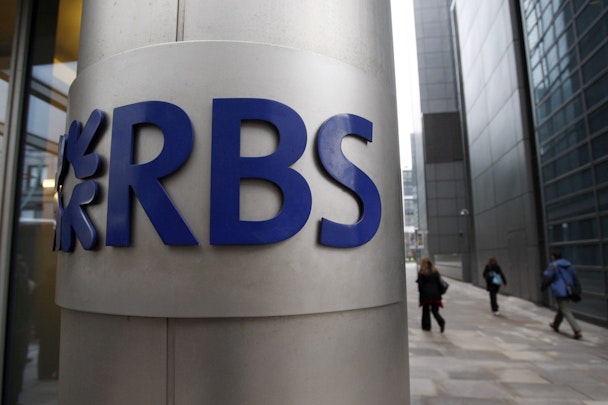RBS CMO David Wheldon says it won't pull ads from Daily Mail in the name of brand safety
The glare of the industry spotlight on brand safety has shifted from platforms to publishers over the past six months, but RBS’ chief marketing officer David Wheldon has told The Drum he would be reluctant to freeze spend with editorial titles like the Daily Mail in the same way it did with YouTube.

RBS’ chief marketing officer David Wheldon has told The Drum he would be reluctant to freeze spend with editorial titles / RBS
Brands, he argued, should not be the "judge and jury on what’s appropriate content".
The bank was one of the first advertisers to pull investment from YouTube after reports of ads being misplaced next to extremist and pornographic content hit the national press in 2017. However, he suggested that pulling ads from news sites was a separate, thornier, issue.
Wheldon said RBS “hasn’t had a single incident” with the Google-owned platform since it resumed YouTube spend in the few weeks after the crisis emerged last year. However, he noted that some customers had taken issue with its ads appearing on Mail Online – "bizarrely" conflating illegal content with content that posed ethical questions.
RBS, he revealed, found itself embroiled in a recent controversy after its ads appeared adjacent to a column published on the site by Richard Littlejohn. The piece, which criticised Olympian Tom Daley and his husband Dustin Lance Black after they announced they were expecting a child, prompted Center Parcs and the Southbank Centre to cease advertising with the paper.
“I might disagree with what Richard Littlejohn said but I am not editor of the Daily Mail and actually RBS is after the Daily Mail’s audience,” he said.
“We’re sorry if our ad appears digitally alongside something people don’t like. We chose not to talk publicly about it [at the time] – even though I am now – because I think long and hard about the issues that are at hand here, and one of them is not we cannot be judge and jury on what’s appropriate content. Yes we have to follow the laws and guidelines and stipulations of this fair land, and that’s exactly what we do.”
Drawing the distinction between illegal content and potentially polarising content, Wheldon said that when it came to the latter, the issue of advertisers deciding what was and wasn’t appropriate was verging into “ethical” territory.
His comments come amid a growing pressure on advertisers from lobbying groups like Sleeping Giants and Stop Funding Hate who have taken issue with brands spending with right-leaning publications and websites across the media spectrum.
Earlier this year the issue of whether advertisers should be moral gatekeepers came to a head when retailer Paperchase pulled a promotion it was running with the Daily Mail following lobbying from campaigners.
Virgin Trains too found itself in the midst of the debate after it banned the sale of the tabloid from its services, only for chief executive Richard Branson to u-turn on the decision.
Wheldon explained that the only way RBS would quit advertising on an editorial title was if it took "really extreme" views that were offensive to its customers at large. Indeed, the bank flexed this muscle earlier this year when it blacklisted far-right Steve Bannon-fronted outlet Breitbart as a media buy.
Wheldon explained: "We’re pragmatic about it but we’re also thoughtful because we understand that there are all sorts of pressure groups who will take offense to things and they are our customers too.
"What Richard Littlejohn said, for example, does not represent our views but this is the problem with digital advertising – you do not know specifically where your ad will land. It’s not like the good old days of TV buying where you would say 'show me this spot list'."
Noting that this is much tougher to do digitally, he said that focusing on brand safe environments was still high on RBS' agenda.
Discussing whether RBS would ever follow Bank of America's recent example and appoint an internal brand safety chief, Wheldon said he believed it wasn't just the job of one person.
"I want everybody in my team to think about brand safety," he added, cautioning that by putting the responsibility in the hands of one person, other marketers "may think they don't have to worry about it".
Wheldon, who is also president of the World Federation of Advertisers (WFA), said that data from members uncovered that actually it is the role of the chief digital, or media, officer that's on the rise.
"Everything is being digitised. Banking is changing exponentially, and customers' experience of our app shows that – but I think there's a confusion [among brands] between digital advertising and communication and the digitisation of all services."

